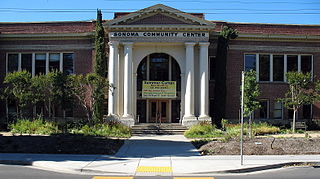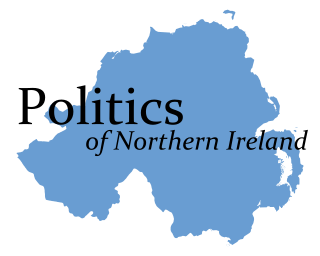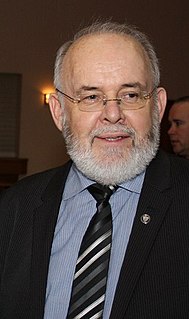| |||||||||||||||||||||||||||||||||||
| |||||||||||||||||||||||||||||||||||
| |||||||||||||||||||||||||||||||||||
| |||||||||||||||||||||||||||||||||||
The Belfast South by-election was held on 4 March 1982 following the death of Robert Bradford, Ulster Unionist Party (UUP) Member of Parliament for Belfast South.

The Ulster Unionist Party (UUP) is a unionist political party in Northern Ireland. Having gathered support in Northern Ireland during the late-nineteenth and early-twentieth centuries, the party governed Northern Ireland between 1921 and 1972. It was supported by most unionist voters throughout the conflict known as the Troubles, during which time it was often referred to as the Official Unionist Party (OUP). Between 1905 and 1972 its MPs took the Conservative whip at Westminster, considered as part of the Conservative Party.

Belfast South is a parliamentary constituency in the United Kingdom House of Commons. It has been represented since 2017 by Emma Little-Pengelly of the Democratic Unionist Party.
Contents
Bradford had held the seat since the February 1974 general election, initially for the Vanguard Progressive Unionist Party, but since 1978 as a UUP member. He was murdered by the Provisional IRA on 14 November 1981 while holding a political surgery in a community centre in Finaghy. Unusually, the Seanad Éireann passed a motion of sympathy for his death.

A political surgery, constituency surgery, constituency clinic, mobile office or sometimes advice surgery, in British, Irish and Australian politics, is a series of one-to-one meetings that a Member of Parliament (MP), Teachta Dála (TD) or other political officeholder may have with his/her constituents. At a surgery, constituents may raise issues of concern in the same manner that a person may directly consult a General Practitioner in his or her surgery. The issues may relate to local issues or to national policy matters. Often the constituent's issue will be followed up by a caseworker or assistant. Surgery meetings are usually confidential and differ from town hall meetings, which are open to many people at the same time.

Community centres or community centers are public locations where members of a community tend to gather for group activities, social support, public information, and other purposes. They may sometimes be open for the whole community or for a specialized group within the greater community. Community centres can be religious in nature, such as Christian, Islamic, or Jewish community centres, or can be secular, such as youth clubs.
While Belfast South was one of the UUP's strongest seats, they had suffered several electoral setbacks, and had lost two other Belfast seats to the Democratic Unionist Party (DUP) at the 1979 general election. The DUP had not contested Belfast South in 1979, so when they announced their intention to contest the by-election, many commentators expected them to win the seat.

The Democratic Unionist Party (DUP) is a unionist political party in Northern Ireland. Ian Paisley founded the DUP in 1971, during the Troubles, and led the party for the next 37 years. Now led by Arlene Foster, it is the party with the most seats in the Northern Ireland Assembly and the sixth-largest party in the House of Commons. Following the 2017 general election, the party agreed to support a Conservative minority government on a case-by-case basis on matters of mutual concern.
The UUP decided to stand Martin Smyth; a minister of the Presbyterian Church in Ireland and former Grand Master of the Orange Order who had been associated with the Vanguard Movement of which Bradford had been a member, although Smyth had never followed Vanguard out of the UUP. The DUP stood William McCrea, a minister of the Free Presbyterian Church of Ulster and member of Magherafelt District Council who had been associated with the Third Force paramilitary group. The other Unionist party to stand in 1979, the Unionist Party of Northern Ireland, had dissolved in Autumn 1981.
Reverend William Martin Smyth is a Northern Irish unionist politician, and was Ulster Unionist Party Member of Parliament for Belfast South from 1982 to 2005. He was a Vice-President of the Conservative Monday Club.

The Presbyterian Church in Ireland is the largest Presbyterian denomination in Ireland, and the largest Protestant denomination in Northern Ireland. Like most Christian churches in Ireland, it is organised on an all-island basis, in both Northern Ireland and the Republic of Ireland. The church has approximately 225,000 members.

The Loyal Orange Institution, more commonly known as the Orange Order, is a Protestant fraternal order based primarily in Northern Ireland. It also has lodges in the Republic of Ireland, a Grand Orange Lodge in the Scottish Lowlands and other lodges throughout the Commonwealth, as well as in the United States and Togo. The Orange Order was founded in County Armagh in 1795, during a period of Protestant–Catholic sectarian conflict, as a Masonic-style fraternity sworn to maintain the Protestant Ascendancy. It is headed by the Grand Orange Lodge of Ireland, which was established in 1798. Its name is a tribute to the Dutch-born Protestant king William of Orange, who defeated the army of Catholic king James II in the Williamite–Jacobite War (1688–1691). Its members wear orange sashes and are referred to as Orangemen. The order is best known for its yearly marches, the biggest of which are held on or around 12 July.
South Belfast had also produced many of the Alliance Party of Northern Ireland's best results. Despite the possibility of a split Unionist vote between the UUP and the DUP, a win looked out of their reach, but they hoped to increase their share and retain second place. They stood David Cook, a former Lord Mayor of Belfast.
The Alliance Party of Northern Ireland (APNI) is a liberal and centrist political party in Northern Ireland. It is Northern Ireland's fifth-largest party overall, with eight seats in the Northern Ireland Assembly.
David Sommerville Cook is a former politician in Northern Ireland.
The nationalist vote in the constituency was low; the main nationalist party, the Social Democratic and Labour Party (SDLP) had never won so much as 10% of the vote. Despite this, the SDLP stood Alasdair McDonnell, a former member of Belfast City Council, hoping to increase their vote. Sinn Féin, while tentatively planning to contest some elections in Northern Ireland, had not yet contested elections at this point and with little background in the constituency, chose not to stand a candidate.

The Social Democratic and Labour Party (SDLP) is a social-democratic and Irish nationalist political party in Northern Ireland. The SDLP currently has 12 MLAs in the Northern Ireland Assembly. It has no elected representatives in the House of Commons of the United Kingdom having lost its three remaining Parliamentary seats in the 2017 general election.

Alasdair McDonnell is an Irish politician who is a member of the Social Democratic and Labour Party (SDLP), and was the Member of Parliament for Belfast South from 2005 to 2017. He was also a Member of the Legislative Assembly of Northern Ireland for Belfast South from 1998 to 2015. He was Leader of the SDLP from 2011 to 2015.

Belfast City Council is the local authority with responsibility for part of the city of Belfast, the capital and largest city of Northern Ireland. The Council serves an estimated population of 333,871 (2011), the largest of any district council in Northern Ireland, while also being the fourth smallest by area. Belfast City Council is the primary council of the Belfast Metropolitan Area, a grouping of six district councils with commuter towns and overspill from Belfast, containing a total population of 579,276.
Labour candidates under various descriptions had also traditionally fared well in the constituency, so the United Labour Party, led by Paddy Devlin, stood Brian Caul.
Several other candidates stood. John McMichael represented the Ulster Loyalist Democratic Party, linked to the paramilitary Ulster Defence Association on a platform of Ulster nationalism. Jagat Narain, possibly the first non-white candidate in an election in Northern Ireland, stood as "One Human Family", while Simon Hall-Raleigh stood as "Peace State".










